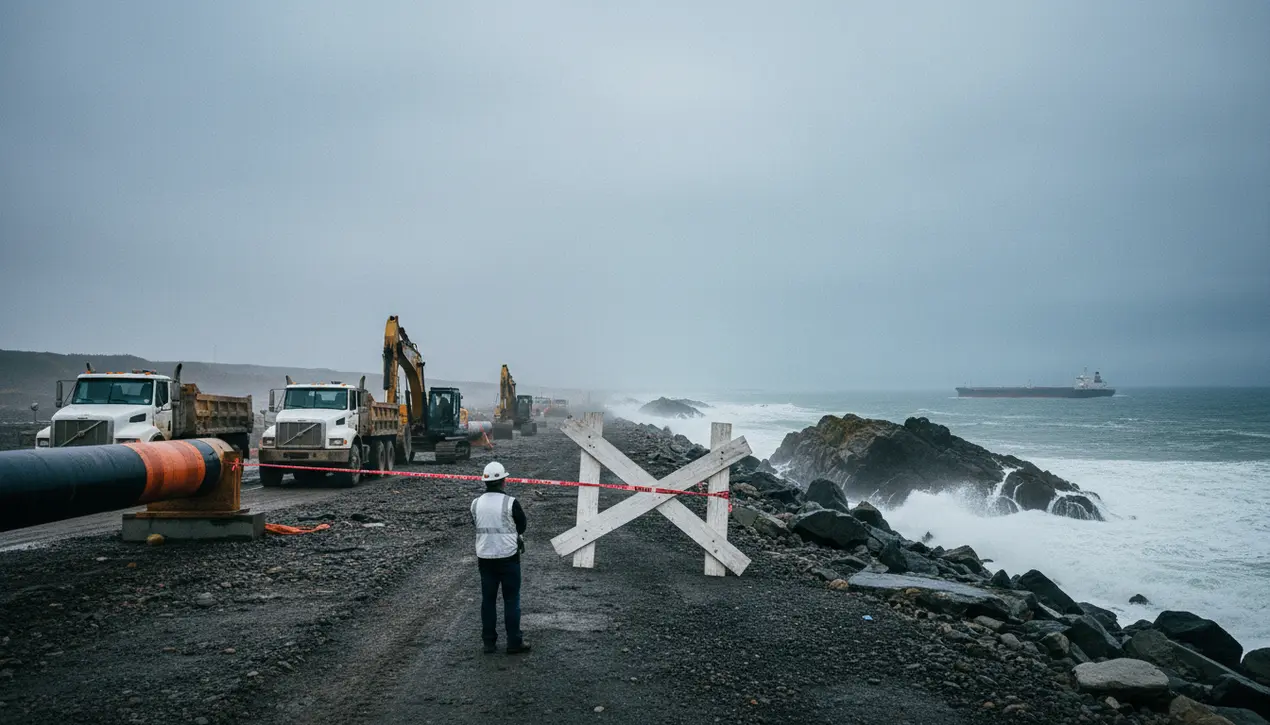
Politicsgovernments & cabinetsPolicy Agendas
Canada's Oil Pipeline Dispute Tests National Unity Ambitions
RO
Robert Hayes
2 hours ago7 min read1 comments
The foundational fault lines of Canadian confederation are being tested once more, not by the traditional linguistic and cultural divides of Quebec, but by the raw economic and environmental tensions surrounding the proposed Trans-Canada Expansion pipeline. This is not merely a dispute over infrastructure; it is a profound constitutional and political crisis that pits Alberta's economic aspirations against British Columbia's environmental sovereignty, threatening to unravel the very fabric of national unity at a time when the federal government in Ottawa is aggressively pursuing its ambition to cement Canada's status as a global energy superpower.The core of the conflict is a classic federal-provincial power struggle, reminiscent of historical battles over resource control, but amplified by the urgent, modern context of climate change. Alberta, sitting atop the world's third-largest oil reserves, views the pipeline as an existential necessity—a vital artery to tidewater ports that would unlock global markets for its landlocked crude and resuscitate an energy sector battered by price volatility and market access crises.Premier Danielle Smith has framed the issue in near-apocalyptic terms, warning of economic catastrophe and a potential 'firewall' strategy of provincial autonomy if the project is stymied, echoing the separatist sentiments that once flared in the West. Conversely, British Columbia's government, backed by a coalition of coastal First Nations and environmental activists, has drawn a line in the sand, citing an unacceptable risk of catastrophic oil spills in its pristine coastal waters and the project's incompatibility with its legislated climate targets.The province has deployed every legal and regulatory tool at its disposal to delay and obstruct, creating a jurisdictional quagmire that the Supreme Court of Canada may ultimately be forced to resolve. For Prime Minister Justin Trudeau, this is a political nightmare of his own making, caught between his dual, and increasingly contradictory, promises: to champion the oil and gas industry that forms a cornerstone of the national economy, and to be a global leader on climate action.His government's acquisition of the Trans Mountain pipeline in 2018 was a dramatic intervention meant to salvage the project, but it also nationalized the conflict, making the federal treasury directly responsible for a multi-billion-dollar asset that has become a symbol of national division. The stakes could not be higher.A failure to complete the pipeline would be seen as a catastrophic betrayal in Alberta, potentially fuelling a renewed and potent Western alienation movement that could destabilize the federal political landscape for a generation. Conversely, forcing the project through over B.C. 's objections would shatter the fragile consensus on climate policy, alienate a key part of the Liberal electoral coalition, and set a dangerous precedent for federal overreach.Expert commentators, like Dr. Marguerite Chapman of the University of Calgary's School of Public Policy, note that this dispute exposes a fundamental weakness in Canada's federation: the lack of a coherent national strategy to manage the transition from a carbon-intensive economy.'We are trying to fight the last war,' Chapman argues, 'using constitutional frameworks from the 19th century to solve a 21st-century problem that involves global markets, indigenous rights, and planetary ecology. The system is not designed for this.' The pipeline is more than steel and bitumen; it is a proxy for a much larger debate about Canada's identity and its place in a decarbonizing world. The resolution of this impasse will define not only the future of Canada's energy sector but will also serve as a critical test of whether the world's second-largest country can muster the political will to hold itself together in the face of profound, internally competing visions for its future.
#energy
#pipelines
#Canada
#interprovincial relations
#federalism
#oil
#natural resources
#editorial picks news
Stay Informed. Act Smarter.
Get weekly highlights, major headlines, and expert insights — then put your knowledge to work in our live prediction markets.
Comments
Loading comments...
© 2025 Outpoll Service LTD. All rights reserved.